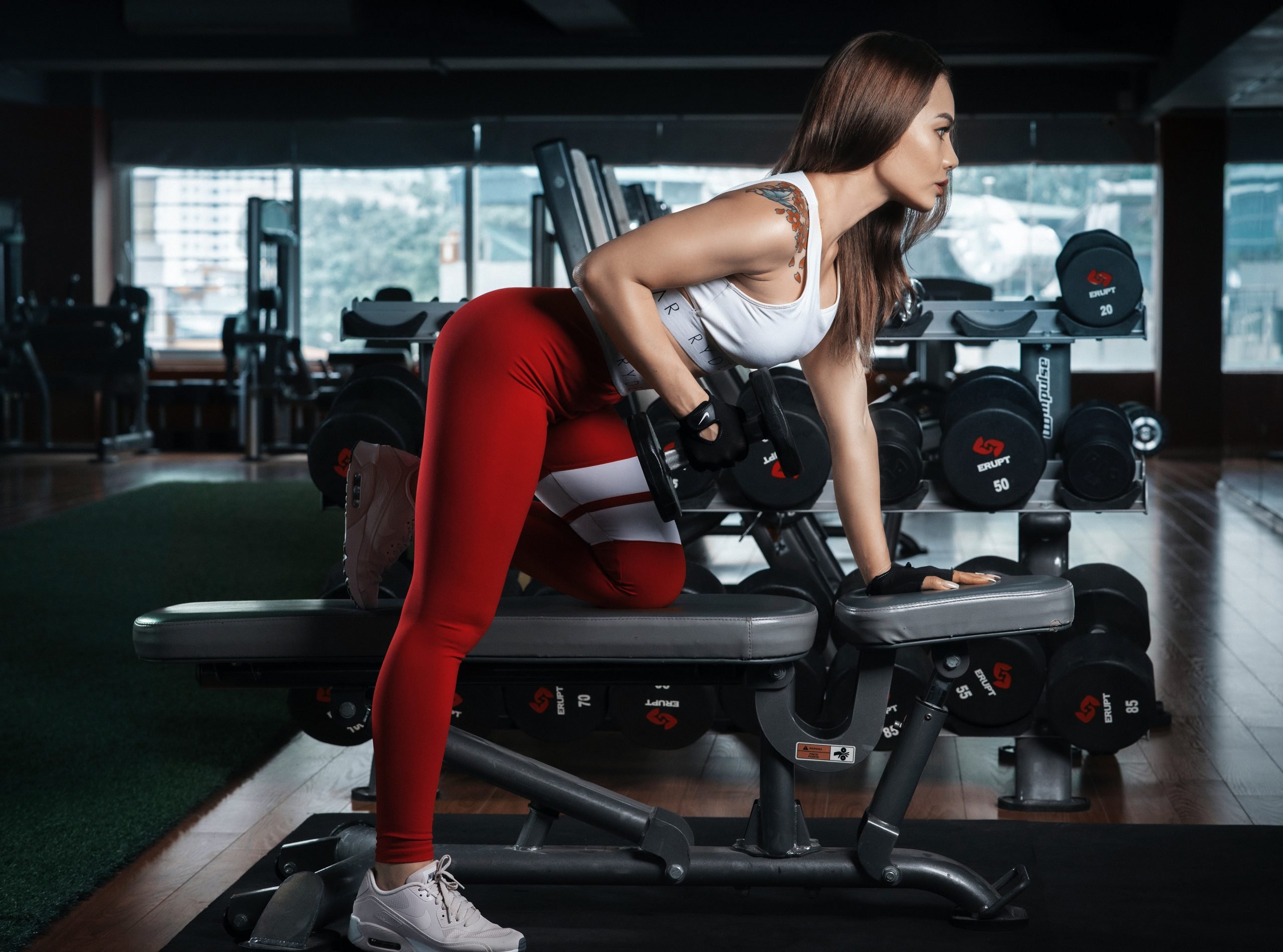Compound exercises work multiple muscle groups at the same time. For example squats – you will use your core, quadriceps, glutes but also calve muscles.
When you do isolation exercises, you use only specific muscle group such as biceps curl – only biceps muscles or leg extension – using quadriceps.
Let’s have a look on benefits of each workouts.
Benefits of compound exercise
Compound exercise should be the biggest part of your workout routine in order to create effective training. It helps you to shape your big muscle groups and grow your muscles faster.
1. It saves your time
If you create a training schedule based on compound exercises you will save your time by using more muscle groups at once.
If you focus only on single muscle group, it can take ages to shape your whole body.
2. Effectiveness
The more muscles you engage, the more effective your workout will be. It increases muscle grow and build strength.
3. Improving flexibility
Because you involve multiple muscle groups at the same time, they need to balance it. That way you improve your coordination and flexibility.
4. Better muscle growth
This type of workout stimulate growth hormones – especially testosterone which is responsible for muscle growth.
6. Burning more calories
Compound exercises using the biggest muscles in your body so that they need more energy than smaller muscles. They need oxygen and blood flow and requires activation from your other muscle groups.
Therefore it will increase your heart rate more than if you workout only isolated muscles. That way you will burn calories during the exercise but also after your session.
7. It makes your life easier
On everyday basis, you use a compound movement without even noticing it. For example – squatting when you lifting up something from the ground.
By engaging these muscles in your workout routine, it will be easier for you to lift anything. Apart from that, you will be stronger and your posture would change as well.

Sample of compound exercise
Deadlift
Muscles involved – Quads, glutes, inner thighs (adductor), hamstrings, lower back, lats, trapezius, abdominals and oblique
Hip thrust
Muscles involved – glutes, hamstrings
Lunges
Muscles involved – quads, hamstrings, glutes, calves, abdominals
Squats
Muscles involved – quads, hamstrings, glutes, abdominals, calves
Chest press
Muscles involved – chest, triceps, shoulders
Pull ups
Muscles involved – lats, upper body
Benefits of isolation exercise
If you need to target a specific muscle group and shape this part of the body, then this type of exercise helps you.
It will shape the particular muscle in a way you want. However, it is more time consuming as you only target one muscle group.
1. Tailored shape for your muscle
When you exercise, you don’t always use all of your muscles. Sometimes you might want to shape a specific part of your body.
For example, it can be a small muscle on your back or in your arm. In this case, it can be a useful workout to add with your compound workout routine.
2. It help you stay active during injuries
If you have had any injuries and need to avoid certain movement, it can help you to maintain other muscles.
In addition, it can help you to build your muscles whilst avoiding exercise that you can’t do right now.
3. You can do it when other muscles need rest
Have you had a leg training yesterday and still feel the pain of some of your muscles? By doing isolation exercise you can workout on a different part of your legs the next day.
Samples of isolation exercise
Biceps curl – only for biceps
Barbell shrug – shoulder exercise
Cable straight arms pull downs – back exercise
Triceps push down – for triceps
Hamstring curls – build your hamstrings
Lying leg curls – hamstrings
Leg extension – for quadriceps
